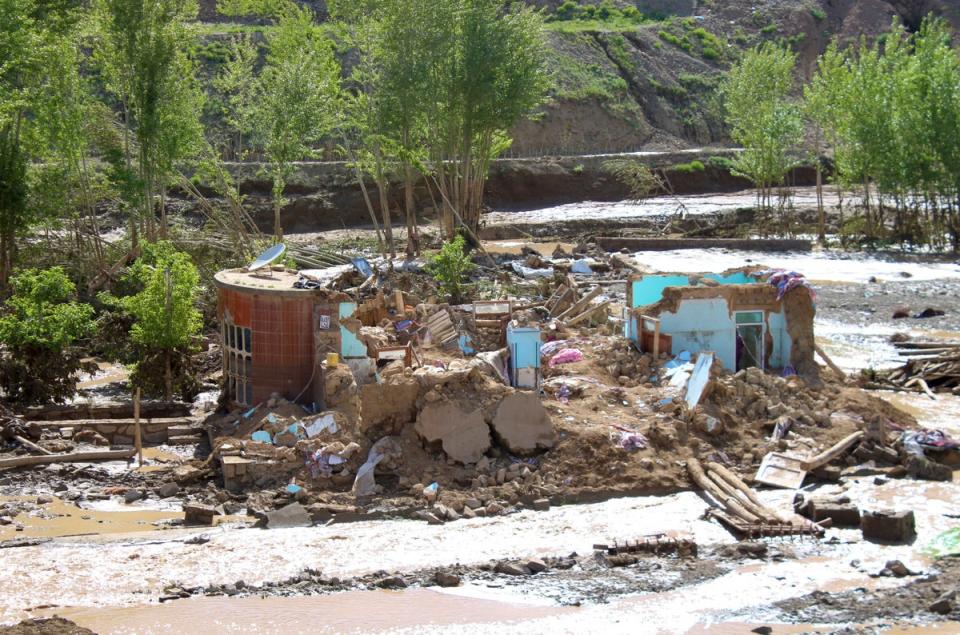Fresh floods in Afghanistan kill nearly 100 people after heavy rain

Fresh floods triggered by heavy rains across Afghanistan killed as many as 100 people over the weekend, officials said.
Abdul Wahid Hamas, spokesperson for Ghor’s provincial governor, said on Saturday that dozens were still missing as many ran to higher ground for safety minutes before the flood waters hit on Friday.
He added that the recent floods had destroyed hundreds of hectares of agricultural land as well as thousands of homes and properties, including in the province’s capital Feroz Koh, causing massive financial losses to the area.
At least 50 were reportedly killed in Ghor on Saturday, while 47 were killed in the northern province of Farayab on Sunday. More than 300 animals were killed in the floods as well.
Shamsudden Mohammedi, head of the information department for Faryab said least 300 hundred houses were destroyed, reported Reuters.
Last week, heavy rains caused flash floods, which killed 315 people and left more than 1,600 injured across the country.
Rescue workers have been trying to reach the worst-affected areas, but the floods have left certain key roads blocked. In the north, Baghlan remains inaccessible by trucks, said the World Food Programme.
The World Health Organization, along with the Taliban government has warned that the death toll could rise significantly as flood survivors are still searching for the missing since the floods hit.
The Taliban said that residents were not prepared to face a sudden rush of water as heavy seasonal rains caused flooding.

“The impact has been profound, leading to loss of life and injuries, with many individuals still unaccounted for,” the WHO’s Afghanistan office said in a statement last week.
“The heavy rains and subsequent floods have disrupted lives and pose a significant risk to children in the affected provinces. As families cope with the loss, maintaining access to safe water, health and protection services is paramount,” Tajudeen Oyewale, Unicef representative in Afghanistan, said.
The UN warned last year that Afghanistan is experiencing large “swings in extreme weather conditions”.
Afghanistan’s meteorological department has also warned that there is likely to be more rain and subsequent floods across the country.
After the Taliban took over and foreign forces withdrew in 2021, the development aid that formed the backbone of government finances was cut.
According to experts, Afghanistan, despite accounting for only 0.06 per cent of global greenhouse gas emissions, ranks sixth among countries most vulnerable to climate change.

